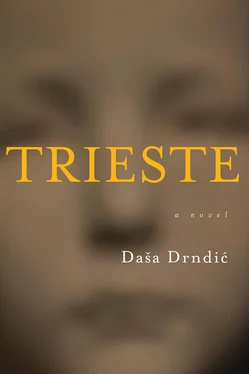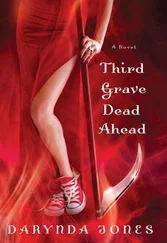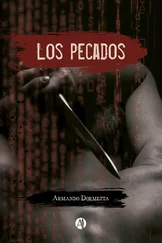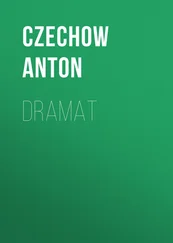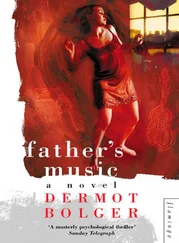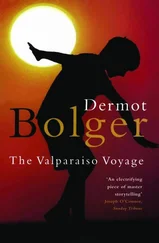It is 1942. The anniversary of the outbreak of war is being celebrated at the camp. All night between 31 August and 1 September Jews sing and dance for the Germans. The next day these Jews are no more. They die with a song on their lips. I am Abraham Krzepicki. I escape Treblinka in late 1942. Later I am killed in Warsaw, in 1943. I am twenty-five years old.
There are many musical instruments at the camp, but not enough musicians. Musicians disappear into the “showers”. S.S.-Hauptsturmführer Stangl loves jazz, so he decides to form an orchestra. When he returns from his vacation, he brings back a collection of cymbals. Kurt Franz orders the tailors to make white suits for the members of the orchestra with shiny, blue lapels and collars and giant, monstruous, blue bow ties of the same fabric. Gold trots out on to the stage in a white tuxedo jacket. He is wearing a white shirt, perfectly pressed trousers, patent-leather shoes. His blue lapels and blue collar glitter in the spotlights. As if we are in a Warsaw cabaret. The S.S. men love Gold. And the camp inmates love Gold. For his forty-fifth birthday they throw him a little party in their workshop. That same evening Gold plays for the S.S. personnel in their casino. Then Kurt Franz orders: Compose me an anthem for the camp. Gold writes the melody; the Czech, Walter Hirsz, writes the words. Afterwards both are killed. The anthem is called “Fester Schritt”. The anthem is played during evening roll-call, while S.S. men whip disobedient inmates, and it is played most often when the inmates do exercises in the yard. At the end of roll-call the inmates sing their hymn once more and Kurt Franz shouts, Lauter, lauter! Kurt Franz loves music at Treblinka. Life was lively at Treblinka.
By the way, my name is Oscar Strawczynski. I arrive at Treblinka on 5 October, 1942. I am a smith and there was work at Treblinka for smiths. When I wasn’t working as a smith, I sorted stolen clothing. I took part in the revolt. I saved my brother and sister. Everyone else from my family was killed, my mother, my father, my grandmother, my grandfather, my uncles. Everyone. Some at Treblinka, some at Auschwitz. After escaping from Treblinka I joined the partisans. I testified in Düsseldorf in 1965. I died in Montereale in 1966.
I killed myself.
My name is Richard Glazar. I killed myself in Prague in 1997.
I survived the camps. The Americans liberated me. I testified at the trials of Kurt Franz, Stangl, and his companions. I studied in Prague, Paris and London. After the Prague Spring I left Czechoslovakia and lived for a long time in Bern.
In the spring and summer of 1943 there were fewer transports. One evening at roll-call, Kurt Franz said, Sundays in the afternoon we won’t work. We’ll have some fun. We’ll have a cabaret. We’ll play music. We’ll sing. We’ll perform sketches, and sometimes we’ll box, that is what he said. Kurt Franz loved boxing.
Let’s box a few rounds, Kurt Franz said to an inmate. We called Kurt Franz “Lalka”. In Polish lalka means doll. This inmate was a professional boxer from Cracow. He was about twenty years old. The soldiers tied the gloves on to the inmate. Lalka took only one glove, the right one. In that glove he tucked a small pistol and grinned. Go! Now! shouted the S.S. men from behind Lalka’s back. With one hand raised, with the hand in the glove, Lalka stepped up to the inmate as if he were ready for a fight, and then he shot the man between the eyes. The boxer fell dead on the spot. That is how Franz boxed. My name is Jacob Eisner.
This is Strawczynski. I’d like to add something. Do you remember Wolowanczyk? He was the terror of the Warsaw underground. Tall, blonde and robust, stronger than Franz. A dangerous man. He wasn’t more than twenty. He was killed afterwards during the revolt. Once Franz — Lalka — started boxing with him, but Wolowanczyk, quick on his feet and spry, kept evading him. Lalka got dangerously angry. He grabbed Wolowanczyk by the shirt and tried to punch him in the head, but the boy flung himself on the ground and Franz missed, lost his balance and fell right next to Wolowanczyk. Then he really went wild. He flung bricks and stones at the boy, threw him to the ground again, kicked him hysterically and flogged him. I watched it all from the roof of the barrack and I was sure Wolowanczyk was dead, that Franz had killed him. But no. Wolowanczyk got up, brushed off the dust and walked away as if nothing had happened. Go on, Glazar.
Concerts were rehearsed in the hallways in front of the gas chambers. One sunny afternoon we gathered around the ring. The S.S. men, trim in their uniforms, sit in a semi-circle. We stand behind them, our heads shaved, in rags; the guards, the body carriers, the tailors, the cobblers, the upholsterers, the cooks, all stand, the washers, clerks, accountants, doctors, gravediggers. We inmates stand behind the S.S. men, and our backs are guarded by soldiers with guns at the ready. Artur Gold and his boys, all in white jackets with broad blue lapels, play a march, after which “the show may begin”. Stangl, head of the camp, sits in the middle. He keeps the beat with his foot and light flicks of the whip to his polished boot. Salwe comes onstage and plays an Italian tarantella. After him, one of the best Warsaw tenors performs an aria from Tosca, the music ascends heavenward, above the barracks, above the gas chambers, disappearing into the pine trees. Then Salwe sings. Salwe sings an aria from Halevy’s opera La Juive. He sings “Rachel, quand du Seigneur”, and we look on, frozen. The S.S. men do not react. Only Stangl turns.
Artur Gold and his brother Henryk were Polish musical stars, especially Henryk. He survived. They performed with their eight-piece jazz orchestra at the Café Bodega in Warsaw. At first they played ragtime, then later waltzes and tangos. They cut records for Syrena, Electro and Columbia. Jerzy Petersburski played with them, author of the hits “O, Donna Clara”, “The Last Sunday”. There were quite a few musicians at Treblinka. The Schermann brothers were there, and little Edek who played the accordion…
One day in October 1942, while I was taking bodies out of the newly constructed gas chambers, a kapo came up to me with a violin in his hand and asked, Do you know anyone who can play? I know, I said, I play.
They immediately moved me into the kitchen to peel potatoes. There were six of us. One was Fuchs, who played the clarinet and who had worked for the Polish Radio before Treblinka. At first just the two of us played, Fuchs and I, from time to time during roll-calls. Then we were joined by a pianist and composer from Warsaw who played the accordion, and from that time we were a trio. The most popular song was the love song “Tumbalalaika”. That spring an S.S. man often came by whose nickname was “Blackie” ( der Schwartze ). He would sit himself down on a chair near the well and order us to play for him. He’d say, Play one for my soul. At Treblinka once we played at a Jewish wedding. That day there was a lot of dancing. Then the happy couple was led to the “showers”.
My name is Jerzy Rajgrodzki.
Lager zwei ist unser Leben, ay, ay, ay! Lager zwei ist unser Leben, ay, ay, ay! we sang in chorus, on the open area between the gas chambers and the mass graves. I am a singer and actor from Prague. My name is Spiegel. I died, too.
Pause.
It will be summer soon. Haya goes out for walks again.
The shop windows are full of women’s suits in pastel hues. Haya looks at them. The skirts are too short, she says. Women have fat knees. The suits close the construction and express a function as a power series of the argument x with the assumption that the function is infinitely differentiable at 0. That would be a Maclaurin series. In a Taylor Series, the function y = f(x) is expressed as a power series in a neighbourhood of point a, Haya says to a woman who is also standing in front of the display window.
Читать дальше
